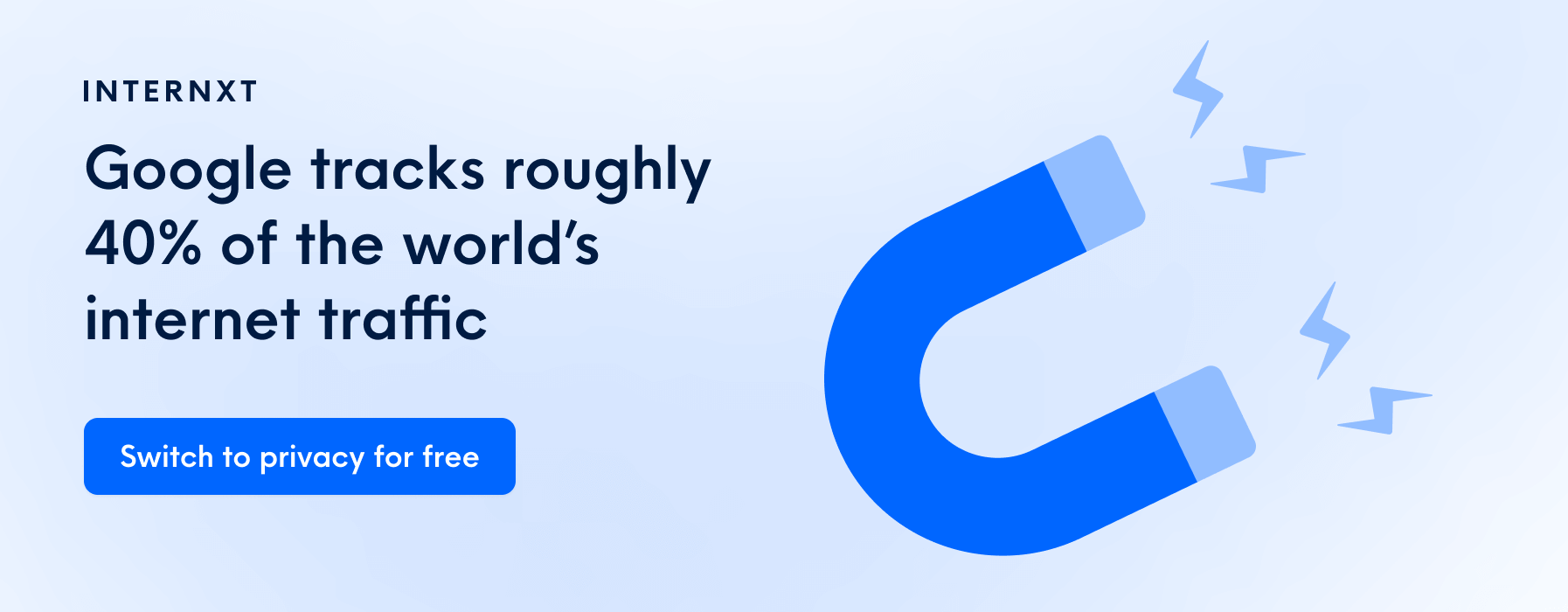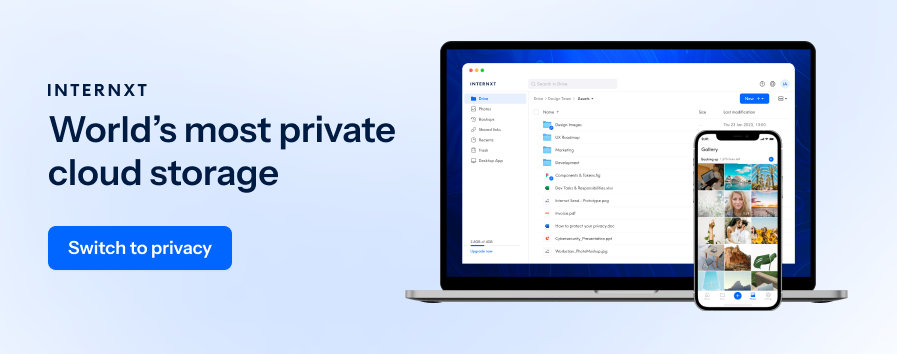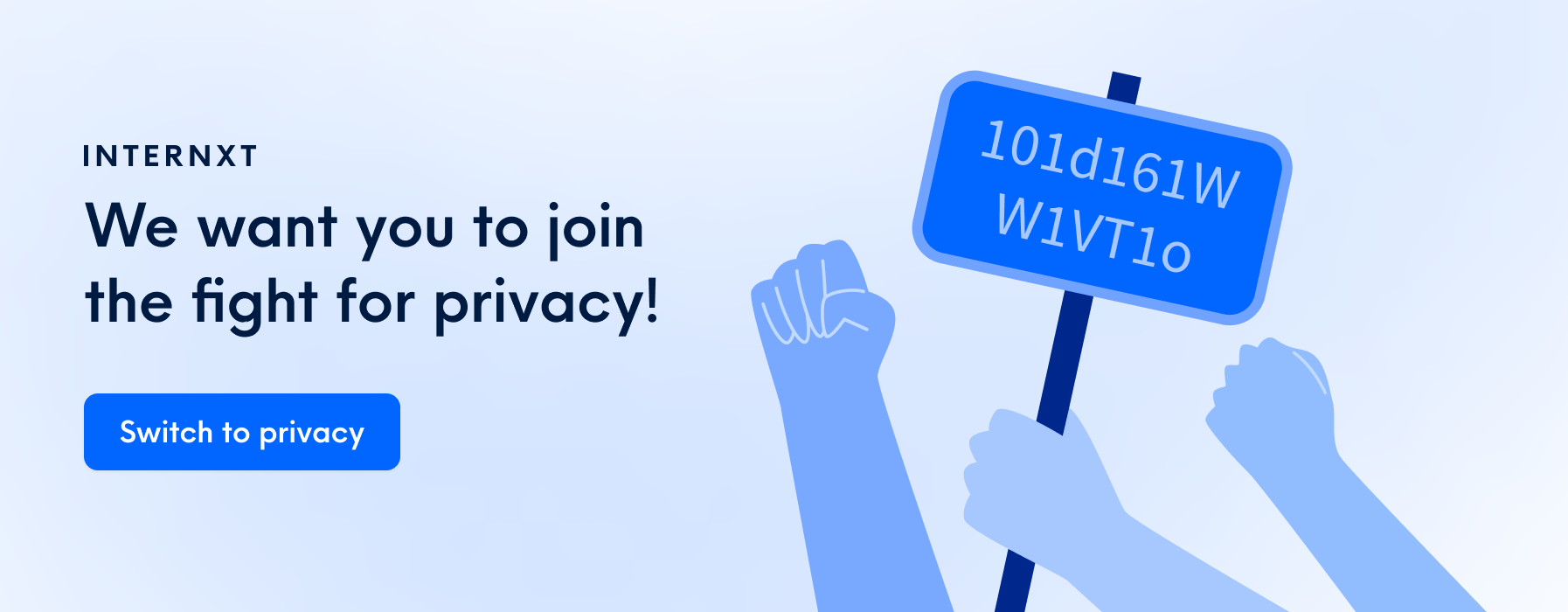A Future Without Online Privacy: The Possible Outcomes of Neglecting Privacy?

Privacy is still a thing–for now. But there may come a time where privacy online is nothing but a distant memory. As our lives become more and more intertwined with the internet, the protection of online privacy has become a huge deal.
Privacy is a battle of inches (or centimeters) and as technology advances and our digital footprint expands, the risks to our privacy also increase slowly but surely.
A World With Little to None Online Privacy: What Would Happen?
Ready for some dark reading? This article aims to shed light on the potential negative outcomes that can arise when online privacy is not adequately protected. From personal security threats to compromised identities and erosion of trust, neglecting online privacy now and in the foreseeable future can have serious, far-reaching consequences.
Increased Risk of Cybercrime
When online privacy is compromised, individuals become vulnerable to various forms of cybercrime. From identity theft and financial fraud to phishing scams and ransomware attacks, the absence of proper privacy measures creates an open invitation for cybercriminals to exploit personal information.
The consequences can be devastating, leading to financial loss, damaged reputations, and emotional distress. Without protective measures in place, users are more likely to fall victim to cybercriminals' malicious intentions.
Loss of Control over Personal Data
Failing to prioritize online privacy often results in the loss of control over personal data. Companies and organizations may collect, store, and monetize users' information without their knowledge or consent.
This lack of control raises concerns about how personal data is used, shared, and potentially exploited. It can lead to targeted advertising, invasive profiling, and even the manipulation of individuals' beliefs and behaviors. Without the ability to determine how personal data is handled, users are left vulnerable to privacy infringements and potential manipulation.

Negative Impact on Personal and Professional Relationships
A breach of online privacy can have a significant impact on personal and professional relationships. In the personal realm, leaked private messages, sensitive photos, or personal details can cause embarrassment, damaged trust, and strained relationships with friends, family, or romantic partners.
In the professional sphere, compromised privacy can lead to reputational harm, loss of job opportunities, or even dismissal. Employers, colleagues, or clients may lose trust in individuals whose privacy has been breached, undermining their professional standing and opportunities.
Erosion of Trust in Online Platforms
When online privacy is neglected, trust in digital platforms is eroded. Users become wary of sharing personal information or engaging in online activities due to concerns about data misuse or security breaches.
This erosion of trust can have far-reaching consequences for businesses, online services, and social media platforms that rely on user participation and data collection. As users become more aware of privacy risks, they may withdraw from using certain platforms or services, leading to financial losses and reputational damage for those businesses.
Threats to Freedom of Expression
Lack of online privacy can also jeopardize individuals' freedom of expression. When people fear that their online activities are being monitored or surveilled, they may self-censor or refrain from expressing their opinions openly.
This stifling of freedom of expression stifles creativity, innovation, and open dialogue, which are vital for a healthy democratic society. Without privacy protection, individuals may feel compelled to conform or withhold their true thoughts and ideas, ultimately hindering social progress.
Psychological and Emotional Impact
Neglected online privacy can take a toll on individuals' psychological and emotional well-being. The constant fear of privacy breaches, surveillance, or cyberattacks can lead to heightened stress, anxiety, and a sense of vulnerability. This can impact mental health, causing individuals to withdraw from online activities, isolate themselves, or develop paranoia.
The psychological consequences of compromised privacy should not be underestimated, as they can significantly impact individuals' quality of life and overall well-being.
A Dystopian Future Without Any Online Privacy
While it is challenging to predict precisely how the absence of online privacy would unfold, several potential scenarios give us a glimpse into the possible consequences. Here, we explore some key aspects of a world devoid of online privacy and the implications it may have for individuals, society, and even democracy itself.
Total surveillance
In a world without online privacy, the pervasiveness of surveillance would reach unprecedented levels. Governments, corporations, and other entities would have unrestricted access to monitor and track individuals' online activities, communications, and behaviors.
Constant surveillance would hamper personal freedom, breeding a society of individuals who feel constantly watched and inhibited in their actions and expressions. The lack of privacy would result in a chilling effect on creativity, free thought, and individuality, as people would become more cautious and self-censoring in their online interactions.
Manipulation and control
The absence of online privacy would provide those in positions of power with an unprecedented opportunity to manipulate and control individuals.
With access to extensive personal data, entities could employ sophisticated algorithms to analyze behavior patterns, preferences, and vulnerabilities. This information could be utilized to influence individuals' decisions, shape their opinions, and even manipulate their emotions. The potential for widespread psychological manipulation raises serious ethical and societal concerns, threatening the autonomy and agency of individuals.

Inequality and discrimination
A world without online privacy would likely exacerbate existing social inequalities and foster discriminatory practices. The vast amount of personal data collected without consent could be exploited to discriminate against individuals based on factors such as race, gender, religion, or political beliefs.
This data-driven discrimination could permeate various aspects of life, including employment opportunities, access to healthcare, financial services, and even social interactions. Privacy protection serves as a crucial safeguard against such discriminatory practices, and its absence could lead to a more divided and unjust society.
Cybersecurity threats
A world without online privacy would provide fertile ground for an increase in cybersecurity threats. With personal data readily available, cybercriminals would have an abundance of information to exploit for financial gain, identity theft, and other malicious activities.
Moreover, without the protection of privacy, individuals would become more susceptible to social engineering attacks, phishing scams, and targeted cyberattacks. The consequences would be far-reaching, affecting both individuals and organizations, leading to financial losses, reputational damage, and widespread distrust in digital systems.
Erosion of democracy
Privacy plays a vital role in upholding democratic principles, such as freedom of speech, freedom of assembly, and the right to dissent. Without online privacy, individuals would be hesitant to express their opinions openly, fearing retribution or surveillance.
The dereliction of privacy could undermine the foundations of democracy by stifling political discourse, inhibiting activism, and curtailing citizens' ability to hold those in power accountable. A lack of privacy could lead to a society where dissent is silenced, and individuals feel powerless against intrusive surveillance and state control.

Fight for Privacy!
The importance of protecting online privacy cannot be overstated. Failing to safeguard our personal information online can lead to a range of negative outcomes, including increased cybercrime risks, loss of control over personal data, damaged relationships, erosion of trust, threats to freedom of expression, and psychological distress.
As individuals, it is crucial to be proactive in taking steps to protect our online privacy, such as using secure passwords, encrypting communications, and being mindful of the information we share. Furthermore, policymakers and technology companies must prioritize privacy protection to ensure a safer and more secure digital landscape for all.
The potential future of a world without online privacy paints a concerning picture. From pervasive surveillance and manipulation to increased inequality and cybersecurity threats, the absence of privacy would have far-reaching implications for individuals and society as a whole.
Preserving online privacy is essential to preserving fundamental rights, protect personal autonomy, and maintain a healthy and democratic digital ecosystem. As we navigate the future of technology, it is crucial to advocate for privacy protection, develop robust legislation, and promote responsible practices that prioritize the rights and well-being of individuals in an increasingly interconnected world.

